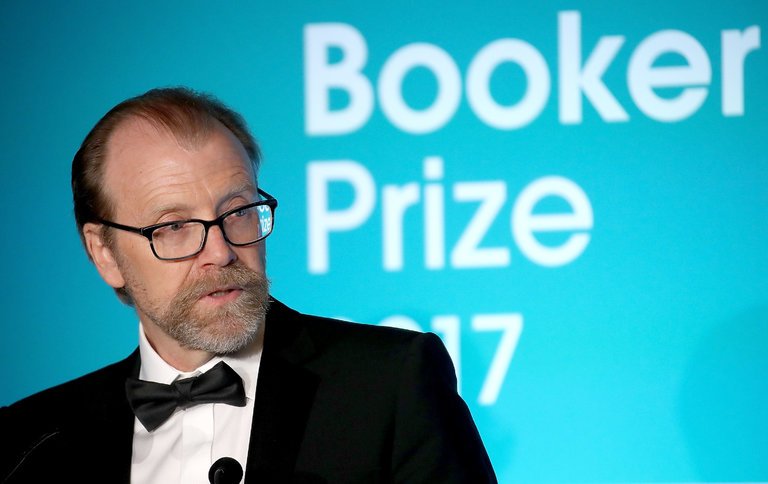Bar American Writers From Man Booker Prize, British Authors Urge
LONDON — The Man Booker Prize is Britain’s most prestigious literary award. But for the past two years, American writers have dominated the competition — and authors from Britain and the Commonwealth countries are none too pleased.
The crescendo of frustration may have reached a peak. A group that counts the literary heavyweights Margaret Atwood, Ian McEwan and Zadie Smith among its members has fired a shot across the bow, demanding that the Man Booker Foundation reverse a 2014 decision making any novel written in English and published in Britain eligible for the prize.
Leading authors and critics from the group, the Rathbones Folio Academy, bashed the Booker’s policy anew this week, arguing that changing the rules had taken away the distinctiveness of the prize, which was previously limited writers from Britain, Ireland, Zimbabwe and the Commonwealth.
They also criticized the way in which the Man Booker had highlighted less well known and prominent literature.
Advertisement
Continue reading the main story
“The Man Booker used to provide a point of focus each year for British and Commonwealth fiction, a sense that this had some identity-in-difference, and that British and Commonwealth novels were in some sense ‘talking to one another’ — as distinct from any conversation going on in U.S. fiction,” Tessa Hadley, a British author and member of the Folio Academy, said by email.
Continue reading the main story
“Now, it’s as though we’re perceived, and perceive ourselves, as only a subset of U.S. fiction, lost in its margins and eventually, this dilution of the community of writers plays out in the writing,” she added.
Fears of American hegemony have surrounded the award since the decision was made. They grew as American authors began to dominate the shortlists and longlists, and as two consecutive prizes were awarded to Americans — Paul Beatty in 2016 for “The Sellout” and George Saunders in 2017 for “Lincoln in the Bardo.”
When Mr. Saunders won the prize in October, Lola Young, the chair of judges, dismissed the notion that Americans had colonized Britain’s award, saying: “We don’t look at the nationality of the writer. We’re solely concerned with the book, with what that book is telling us.”
Neither Mr. Beatty nor Mr. Saunders wished to weigh in on the debate, but some American publishers have said that changing the prize’s criteria had taken away an opportunity to learn about new books that they would not have normally come across. Thirty of Britain’s leading publishers signed a letter that was meant to privately urge the Man Booker organizers to reverse the change or risk a “homogenized literary future.”
The signatories highlighted the fact that last year’s Man Booker shortlist consisted of three Americans, two Britons and one Anglo-Pakistani writer.
The shortlist in 2013, the last year before Americans became eligible, included authors from Britain, Canada, India, Ireland, New Zealand and Zimbabwe.
Newsletter Sign Up
Continue reading the main story
Please verify you're not a robot by clicking the box.
Invalid email address. Please re-enter.
You must select a newsletter to subscribe to.
Sign Up You agree to receive occasional updates and special offers for The New York Times's products and services.
Thank you for subscribing.
An error has occurred. Please try again later.
You are already subscribed to this email.
View all New York Times newsletters.
- See Sample
- Manage Email Preferences
- Not you?
- Privacy Policy
- Opt out or contact us anytime
The Booker Foundation responded to the Folio Academy letter by saying that expanded eligibility rules were intended to allow writers of any nationality, regardless of geography, and not specifically to include Americans. .
“The trustees believe that this mission cannot be constrained or compromised by national boundaries,” the Booker Foundation said in a statement.
Advertisement
Continue reading the main story
But with the 2018 Man Booker award approaching (the longlist will be announced in July, and the prize awarded in October), the Rathbones Folio Academy took up the battle, canvassing its 300 members this month. Ninety-nine percent of the members who have responded to the question said that the Booker prize should change its rules again, restoring the former eligibility criteria. (The academy did not release the names of the members who voted.)
Other writers argued that the prize should not be opened to American writers until American awards, such as the Pulitzer and National Book Awards, were opened to British writers.
The Folio group oversees its own literary prize, a rival to the Man Booker, established after the 2011 Man Booker chair of judges, Stella Rimington stressed “readability” and books that “zip along,” according to The Guardian. The Folio group notably awarded its prize to Mr. Saunders before he won the Man Booker.
Not all British writers and critics oppose the Booker’s expanded criteria, however.
“It seems to be that the Commonwealth isn’t a particularly sensible remit for a book prize that is purporting to be for the English language novel,” said Sam Leith, a Rathbone Folio Academy member who judged the Man Booker Prize in 2015. “The English language itself is a much more obvious constituency for it.”
Mr. Leith said by telephone that he understood why some authors were upset about the decision, but added that it was a form of “cultural cringe” to say that British writers can’t compete with American authors.
“Any judging panel is vulnerable to the ‘names’ of authors — the Booker isn’t judged blind,” Mr. Leith added. “But most of the panels that they select are relatively serious critics who will be able to look at a novel on its merits rather than on the merits of its author.”
As for Mr. Saunders, reached by email, he wrote, “It would be better sportsmanship to stay on the sidelines about this.”
Continue reading the main story Read the Original Article






























